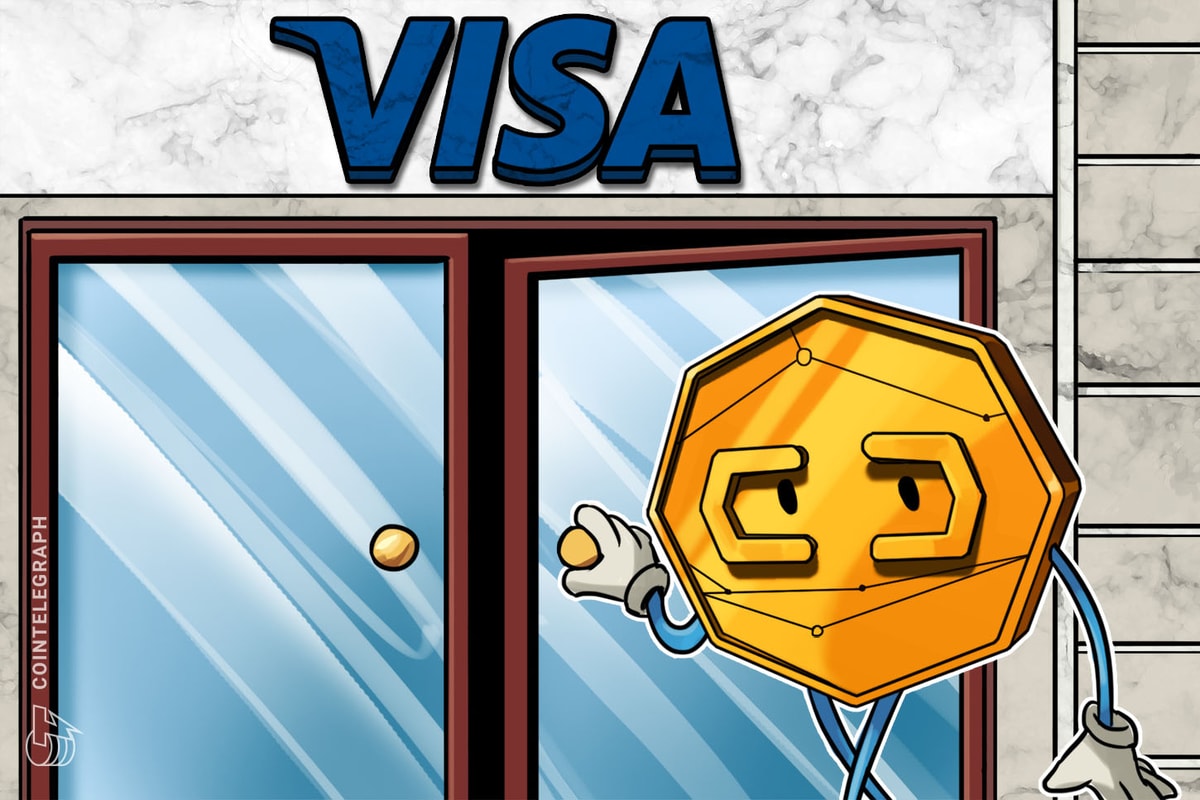
Visa introduced its new Visa Tokenized Asset Platform (VTAP), designed to enable digital asset issuance and management.
On Oct. 3, the financial services giant revealed its VTAP, which it said is built to support a wide range of tokenized assets, including stablecoins and central bank digital currencies (CBDCs).
According to Visa, the VTAP is currently in a sandbox phase, with participants including the Banco Bilbao Vizcaya Argentaria (BBVA) testing core functionalities.
Visa’s digital asset venture
The platform will cater to institutional investors and central banks, offering end-to-end infrastructure for securely minting, transferring and settling digital assets across public and permissioned blockchains.
Vanessa Colella, the global head of innovation and digital partnerships at Visa, said:
“We’re excited to leverage our experience with tokenization to help banks integrate blockchain technologies into their operations.”
Visa sees VTAP as a tool that can help banks digitize and automate workflows, potentially “powering the future exchange of new types of real-world assets.”
The company gave an example of a bank automating the administration of complex credit lines via smart contracts and fiat-backed tokens for issuing payments when payment terms are met.
It also offered another example:
“A bank could also enable their customers to use a fiat-backed token to purchase tokenized commodities or tokenized treasuries with near-real-time settlement onchain.”
Related: Tangem introduces Visa-integrated crypto wallet for secure payments
The financial services giant plans to launch VTAP in a live pilot phase with select customers in 2025, using the public Ethereum blockchain
Blockchain for banking
A crucial part of Visa’s vision for the platform is its interoperability across different blockchains:
“With a single API connection to VTAP, in the future, banks can enable multiple use cases and interact with partners and clients on both permissioned and public blockchains.”
As one of the biggest players in traditional finance, Visa is positioning VTAP as a bridge to decentralized finance. It offers minimal technical integration, so participating banks can access the features in a way that is “always on and more efficient.”
Still, Visa is facing scrutiny from authorities in the United States. On Sept. 24, the Department of Justice (DOJ) filed an antitrust suit against the company for allegedly operating a debit payments monopoly.
The DOJ claims Visa uses exclusivity agreements and the threat of penalties against vendors to ensure competition doesn’t get a slice of its market share.
Two days later, a report emerged from the consumer watchdog Accountable.US, pointing fingers at Visa and Mastercard for operating as a duopoly to ward off competition in the debit and credit card payments sector.
X Hall of Flame: Bitcoin will ‘start ripping’ as Trump’s polls improve — Felix Hartmann

